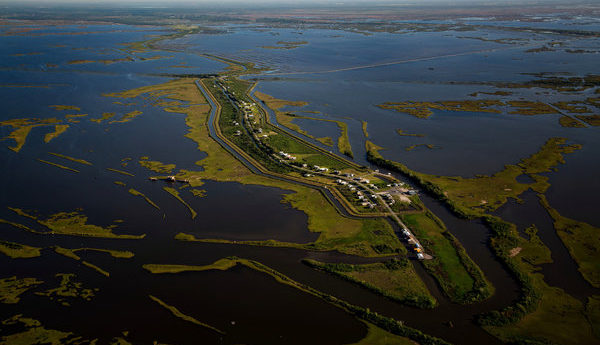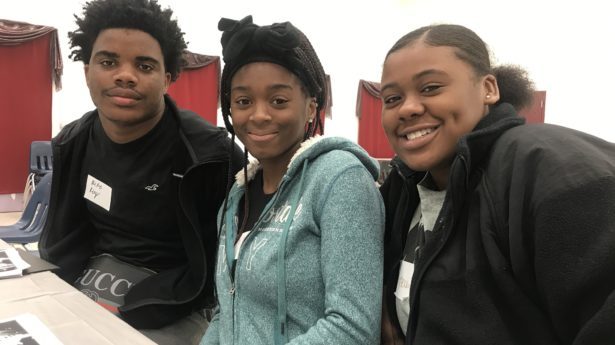The Unitarian Universalist Service Committee advances human rights through grassroots collaborations.
A Minga for the Climate: Supporting Indigenous Climate Work at COP25
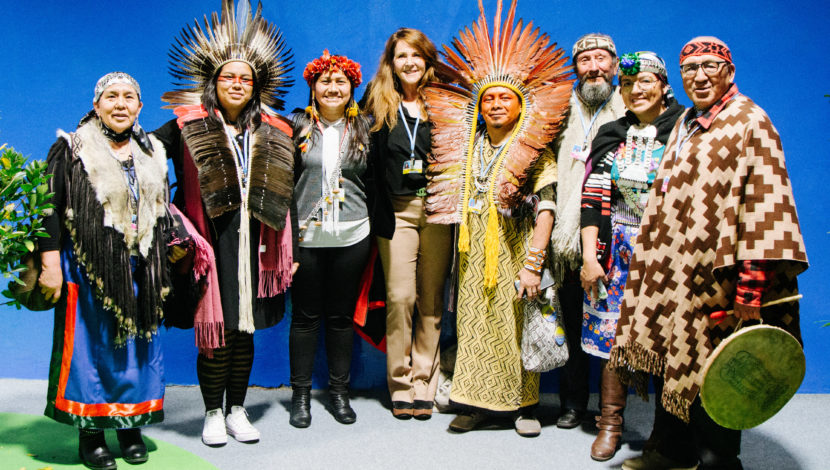
By UUSC Staff on January 29, 2020
What is minga?
In Latin America, minga is a form of collective work that is not paid with money but is done with the conviction that it is possible to get faster and better outcomes for the common good when the community works collaboratively together. The word minga has its roots in the Quechua language, a living Indigenous language spoken by Andean communities in Argentina, Bolivia, Chile, Colombia, Ecuador and Peru.
Last year, a collective of Indigenous leaders from Latin America—concerned about the direction of current climate change negotiations—decided to make an international call to the Indigenous peoples of the world to come together in a Minga Indígena for the climate during the United Nations Climate Change Conference (COP25) in Santiago, Chile (later moved to Madrid, Spain).
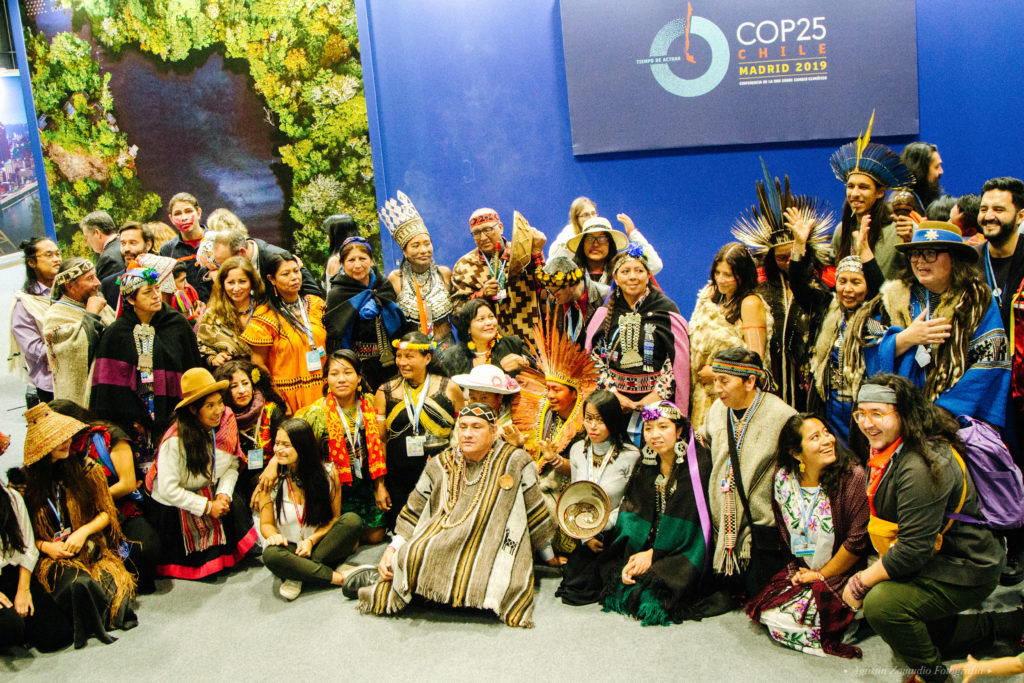
The goals of Minga Indígena for COP25 were to uphold the right of traditional Indigenous governments to represent themselves and have a say about decisions that are extremely likely to affect their sovereignty and territories, including 80 percent of the biodiversity of the planet. Although the right to free prior and informed consent (FPIC) is part of international agreements like ILO169, the number of countries that have ratified the agreement is limited, the agreement has not been adequately implemented, and it does not go far enough to effectively allow Indigenous communities to say no to specific plans or projects in their territories. Minga Indígena has gathered around the UN Climate Change Conference because they believe that COP has proved ineffective on multiple fronts. It has not come up with workable solutions to the climate crisis. At the same time, it has proposed mechanisms like carbon markets that pose a serious threat to Indigenous territories and cultural survival.
UUSC’s team met the Minga Indígena team through the United Nations Permanent Forum for Indigenous Issues (UNPFII). UUSC has engaged with the UNPFII since the early 2000s when the forum was created, a crucial space to support the work of our Indigenous partners and create new alliances. The concept of a large scale alternative Indigenous climate gathering—self-managed and grounded on the same organizing principles of autonomy and self-determination promoted by Indigenous peoples internationally—seemed like an ideal fit for a partnership with UUSC.
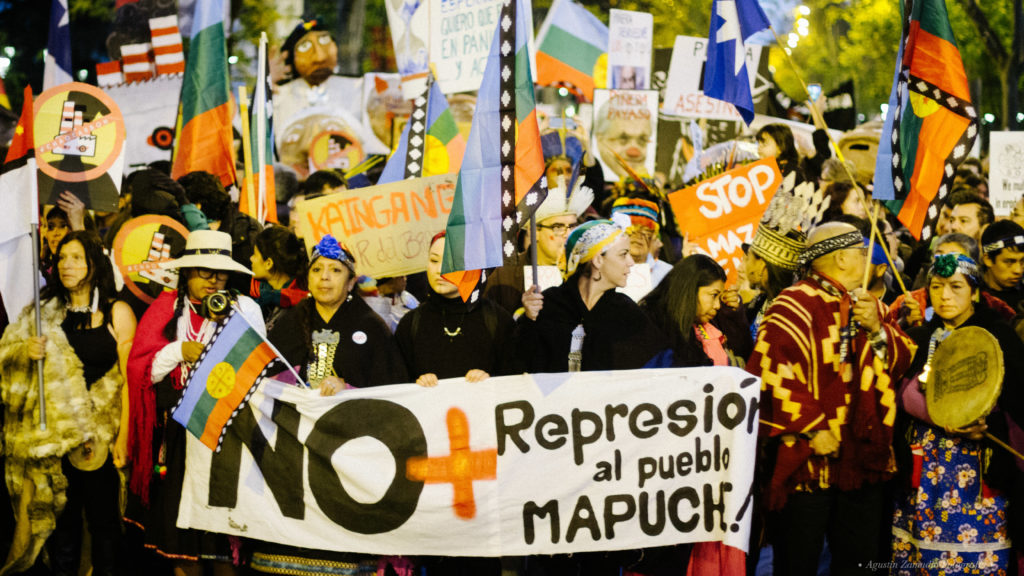
Planning for COP25–And Relocating from Chile to Spain
During the United Nations Climate Action Summit last September, UUSC met with the executive team of 350.org Latin America, this organization had been conducting consultations among Brazilian Indigenous communities for more than a year and produced the documentary “Indigenous Voices of Latin America” as part of that process. Given the evident affinities and complementarities between Minga Indígena and the Indigenous consultation of 350.org, we connected them and widened the alliance for COP25.
Minga Indígena planned to bring together nearly one thousand Indigenous leaders to Santiago, Chile, in December 2019. Many of these leaders were coming overland from communities located all over Latin America. The activities in Santiago included a 10-day alternative climate summit with side events and cultural activities, including an Indigenous film festival. The Chilean political crisis that exploded on October 18 last year triggered the relocation of COP25 from Santiago to Madrid. This relocation ruined all the plans and resources Minga Indígena had already invested for the event.
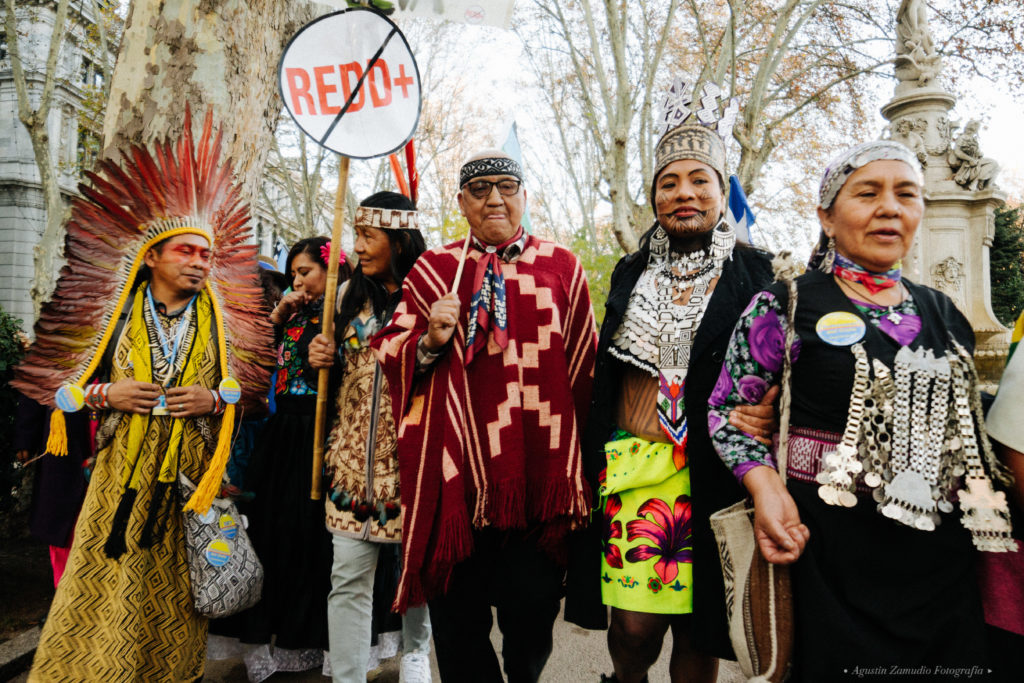
Only a week before the opening of COP25, Minga Indígena was hanging by a thread with all the logistical, political, and financial complications of moving the event from South America to Europe. The organizers of Minga Indígena decided to go ahead and with the support of local civil society organizations in Spain put together a plan for a smaller event in Madrid. UUSC and 350.org, among other organizations, offered emergency funds to support travel and accommodation as well as on the ground support during the event.
The persistence and leadership of Minga Indígena organizers were ultimately rewarded with immense success at COP 25. Their participation began with leading the March for the Climate with a delegation of hundreds of Indigenous leaders in the heart of Madrid. Minga Indígena also ran side events for six days, together with the Social Summit for Climate Action, discussing the diverse ways in which the climate crisis and climate solutions affect Indigenous peoples worldwide. Minga Indígena held full-house events inside the Green Zone of COP25, presenting the testimonies of Indigenous women leaders at the frontline of conservation struggles.
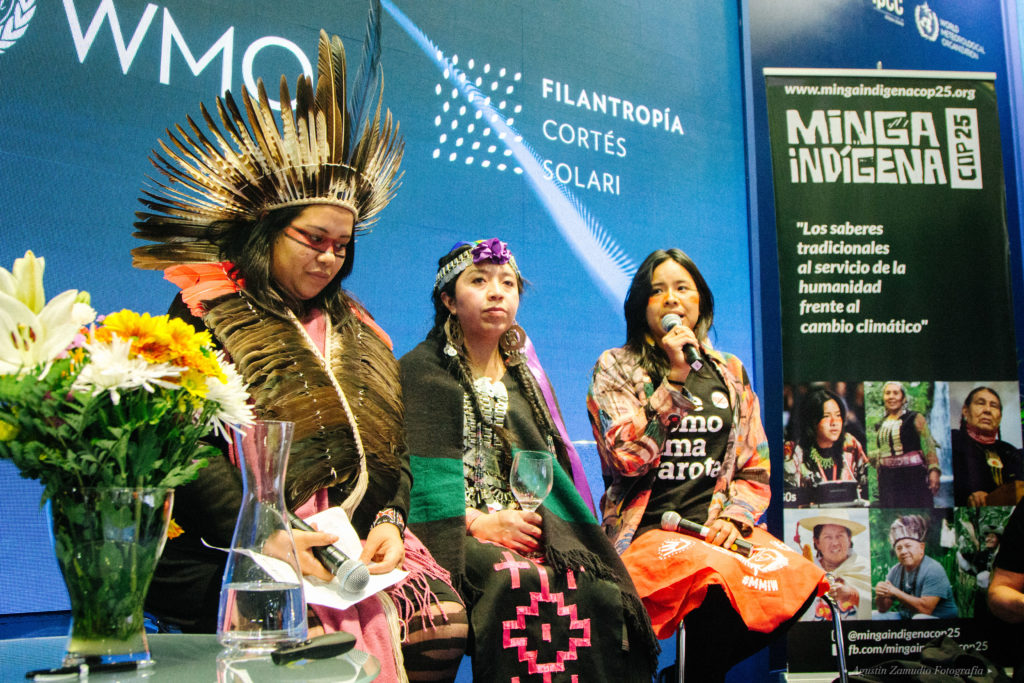
During the event, Minga Indígena worked collaboratively on a climate charter, using the findings of the consultation of 350.org in Brazil and the specific demands of the Indigenous leaders present at COP25. This charter was brought to the official Blue Zone of COP25, a restricted space only available for accredited delegates, and read to representatives of the COP25 Presidency at the IPCC scientific pavilion on December 10. In the charter, Minga Indígena delegates demanded a comprehensive consultation process for engaging Indigenous communities in governmental climate negotiations. This was a watershed moment for the participation of Indigenous peoples in the COP process, disrupting common assumptions regarding the political representation of Indigenous peoples at intergovernmental forums. It raised participants’ ambitions for the possible futures we can realize for our climate-challenged Earth.
Next Steps: Minga Indígena in 2020
More than a month after the closing of COP25 in Madrid, Minga Indígena delegates have returned to their territories. All the materials used during their stay in Madrid (e.g. mattresses) were recycled, shipped to Athens and donated to a refugee shelter in that city. Meanwhile the process leading to Minga Indígena COP26 has already started! This time the ambition is much larger, aiming to bring Indigenous representatives from all over the world to Glasgow in November 2020.
UUSC has been invited once again to be a research and planning partner of Minga Indígena in 2020. This opportunity is an island of light in the ocean of despair that usually comes with climate politics. Minga Indígena is brilliantly aligned with UUSC’s commitment to advance the cause of self-determination and ultimately the survival and thriving of Indigenous modes of existence as one of the most effective solutions to the contemporary climate crisis.
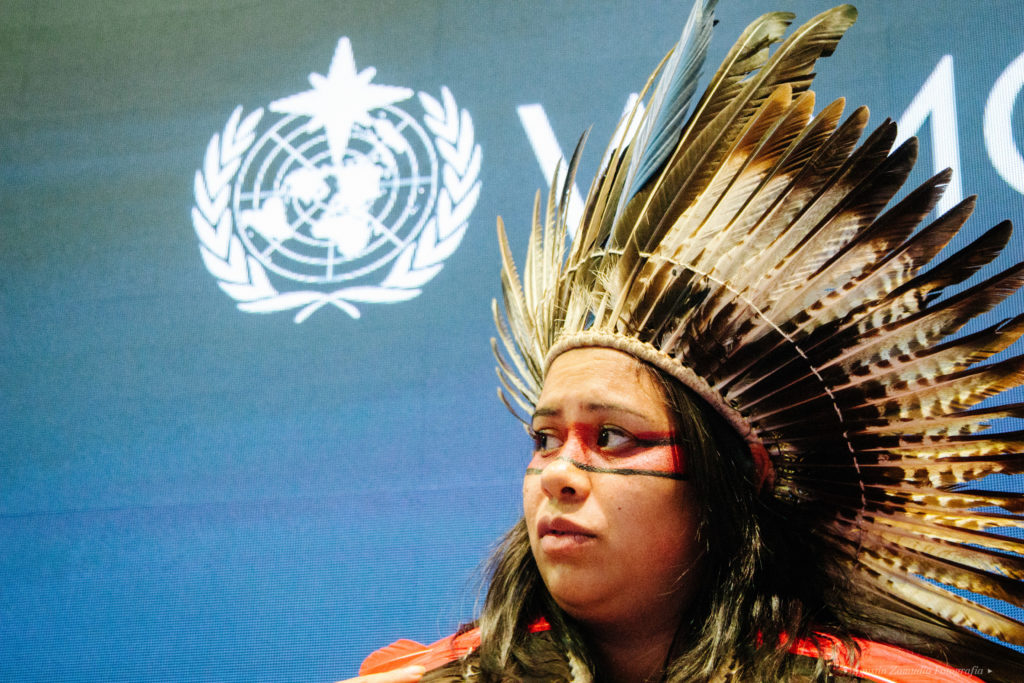
Photos by Minga Indígena / Agustín Zamudio
***
About UUSC: Guided by the belief that all people have inherent worth and dignity, UUSC advances human rights globally by partnering with affected communities who are confronting injustice, mobilizing to challenge oppressive systems, and inspiring and sustaining spiritually grounded activism for justice. We invite you to join us in this journey toward realizing a better future!
